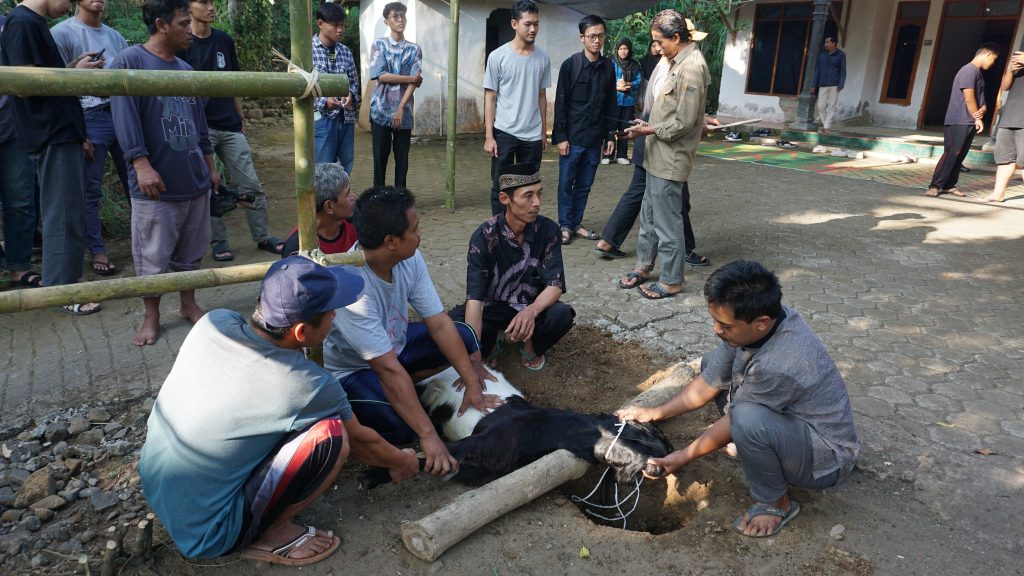Community Services of Halal Slaughtering and Flaying Methods

Community services of Halal slaughtering and flaying methods at Kulonprogo, Yogyakarta
As part of its commitment to community development and livestock-based industry education, the Faculty of Animal Science, Universitas Gadjah Mada (UGM) conducted a community service program on March 16, 2025, in Purwosari Village, Girimulyo, Kulon Progo, Yogyakarta. The program, led by Dr. Ir. Mohammad Zainal Abidin and a team of faculty experts and students, aimed to assist the local community in halal slaughtering, proper skinning techniques, and the optimal use of Qurban animal by-products. These activities were timed with the celebration of Eid al-Adha, when livestock slaughter is widely performed across Indonesia. The community service program in Purwosari Village began with a training session on halal slaughtering practices, delivered by Prof. Yuny Erwanto. This session emphasized the importance of ensuring that animal slaughtering aligns with Islamic guidelines while also maintaining hygienic standards. Following this, Dr. Mohammad Zainal Abidin conducted a demonstration on proper skinning techniques, focusing on minimizing hide damage to preserve its value for the leather tanning industry. After these instructional sessions, villagers were invited to participate directly in the slaughtering and skinning of a goat under expert supervision. This hands-on practice allowed them to gain essential skills and build confidence in proper procedures. In addition to slaughtering and skinning, the program also raised awareness about the economic potential of animal by-products. Participants learned how parts of the animal—especially the skin—can be utilized in the food, feed, and pharmaceutical industries, thereby increasing value and reducing waste. More than 30 community members joined the program, which enhanced both their technical capabilities and social solidarity. The training not only equipped villagers with practical knowledge but also helped them understand the broader economic opportunities tied to proper animal processing.

